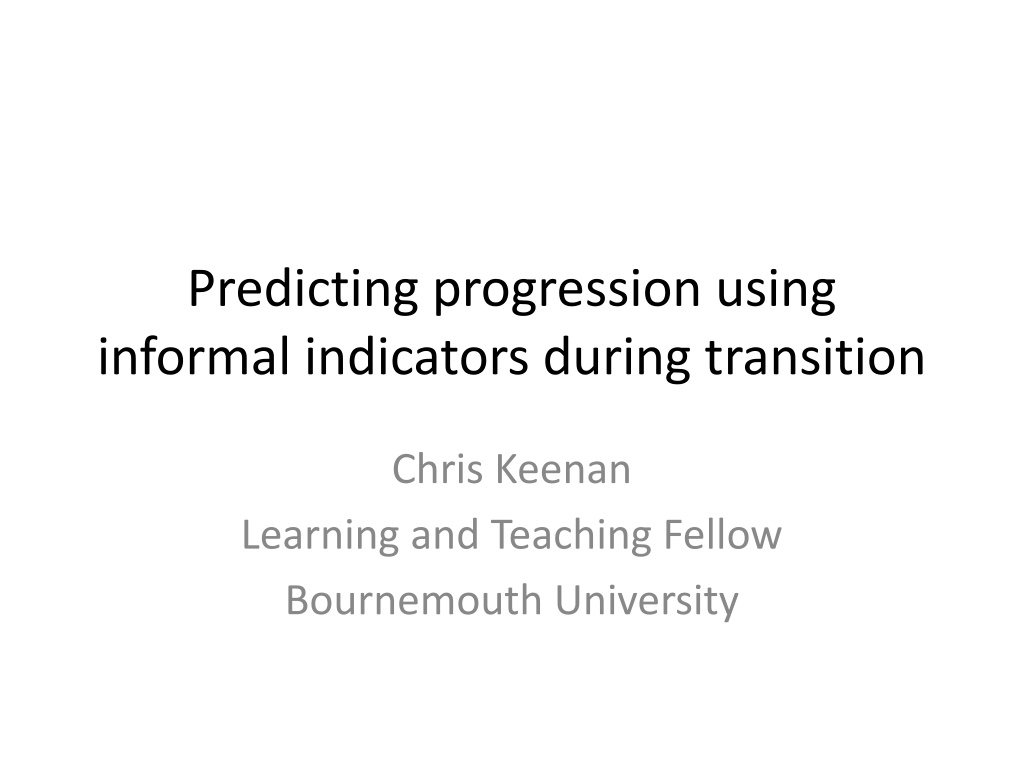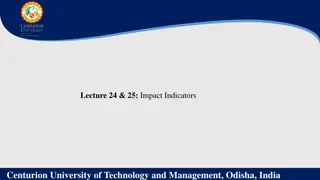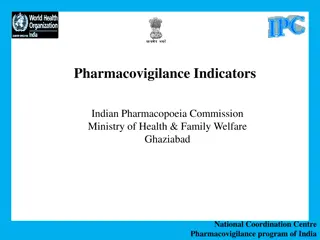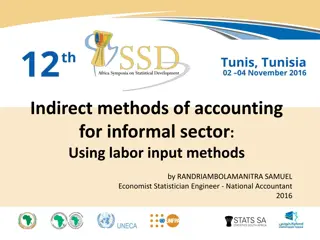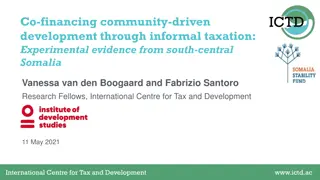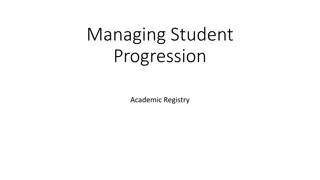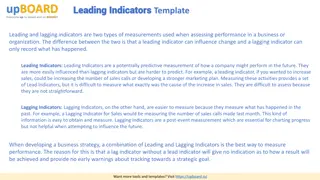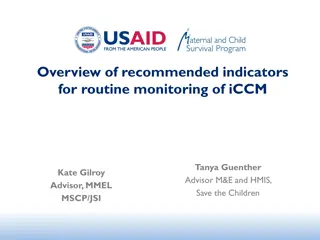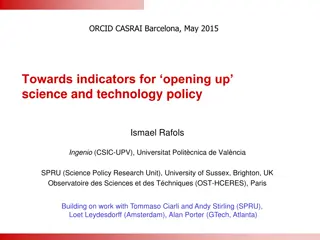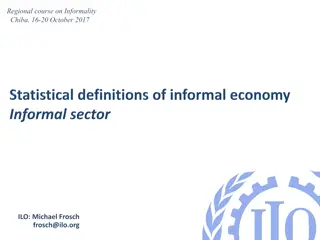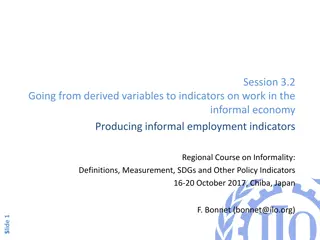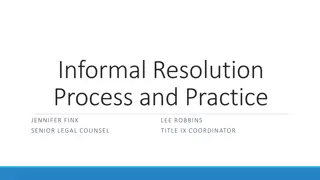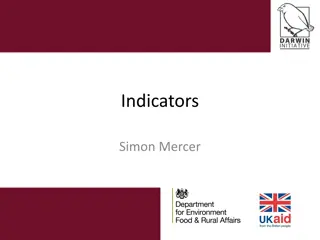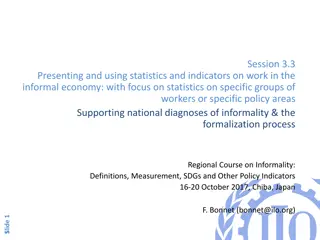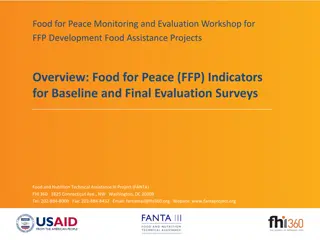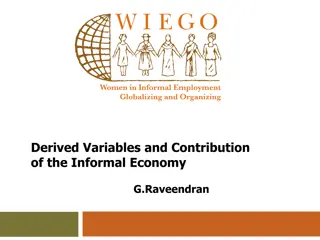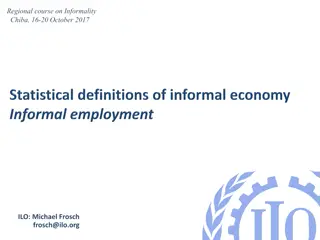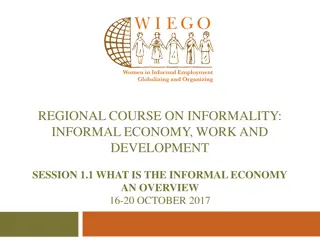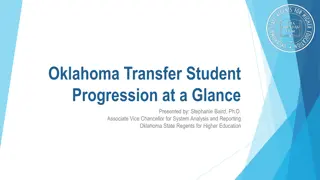Student Progression Through Informal Indicators
Explore the correlation between student engagement during the transition to higher education and their potential to progress. This session delves into behavioral data from 2008-2012, aiming to uncover insights for supporting students effectively. The speaker, Chris Keenan, shares experiences and initiatives like Stepping Stones 2HE, shedding light on the challenges of tracking student engagement early on and proposing solutions for identifying at-risk students.
Download Presentation

Please find below an Image/Link to download the presentation.
The content on the website is provided AS IS for your information and personal use only. It may not be sold, licensed, or shared on other websites without obtaining consent from the author.If you encounter any issues during the download, it is possible that the publisher has removed the file from their server.
You are allowed to download the files provided on this website for personal or commercial use, subject to the condition that they are used lawfully. All files are the property of their respective owners.
The content on the website is provided AS IS for your information and personal use only. It may not be sold, licensed, or shared on other websites without obtaining consent from the author.
E N D
Presentation Transcript
Predicting progression using informal indicators during transition Chris Keenan Learning and Teaching Fellow Bournemouth University
This session will: Look at behavioural data to investigate what can be learnt about the correlation between engagement during transition to HE and a student s potential to proceed Explore further 5 sets of data 2008-2012 Attempt some understanding of the findings Provide opportunity to discuss implications
Starting Points By 2001-2 I was already linking transition and induction experience had realised that if a student was already experiencing a problematic transition into HEthen a poor induction experience could tip them into leaving Set up Stepping Stones 2HE in 2002 as a discipline focused mechanism to ease transition to HE, bridge transition, provide and integrate social and academic learning opportunities
Problem with timing Difficult to track engagement of students in the first few weeks of Year 1. Registers, non submission of assignments, often provide early indicators But, by the time the information is available it is often too late I am making the argument that it is possible to identify a correlation between early engagement (in transition phase) with potential to progress But, the problem is, what can we do with this data
First four weeks Conversation with Dr Randy Swing Conducted a retrospective study of a cohort of 79 students I was teaching 2007-2008 Collected registers for the first four teaching weeks I identified 28 students with more than one absence in the first four weeks as high risk of early withdrawal or exam failure Exam Board: 16 of those 28 were referred to repeat at least one unit; 2 were fail/withdraw; 2 had left before the exam board; 8 proceeded Initial thoughts: perhaps this is the holy retention grail!
In 2008 I repeated the study with the new intake of the same degree programme this time 83 students High entry rate students Collected registers teaching weeks 8 Oct-29 Oct Applied same crude criteria - this time 17 students with four or more absences during first four teaching weeks were identified
I identified 17 students All of them had a long tutorial session with me in November when they received their first assignment back I expressed my concern One student said he appreciated the wake up call At the exam board: 7 of them were referred in one or more units 2 were fail/withdraw 3 withdrew before the exams 5 progressed safely Similar findings as last year, tutorial had not made significant difference high grade intake What was going on? What was the data telling me? - - - -
In 2009 repeated exercise with a different cohort n=209 Analysed attendance during 6 October - 21 October and identified any student with 4 absences as high risk of early withdrawal/failure Identified 26 students when I checked progression, 20 of those students had left
In 2010 repeated study with engineering students found similar results Again, even when risks were identified to students there seemed to be little change on their outcomes Difficult to find out what was going on
In 2011 I conducted a more in depth study with engineering students. I ran the whole induction week before formal teaching. During induction week (ie before contamination : teaching, practices, procedures, etc) I monitored attendance at every induction week activity including campus tours, ice breakers, etc.
Findings: 92 students: 2 repeaters not included. 90 students Enhanced transition support, more keep warm communication, pre-enrolment activities, themed lectures in induction week, involvement of Peer Assisted Learning leaders This time, I checked for any absence from both: any induction week session AND any absence in first week of teaching During induction week 40 students with any absence at all were contacted by myself or one other colleague to check how they were getting on Two said they were waiting for proper teaching to start, effectively isolating themselves 26 of the 40 had absence in first week of teaching Outcomes: have not had exam board yet but so far 15 of that group of 26 have left
What can be concluded: Self fulfilling prophecy? How can this be addressed when students are counselled but still don t change Started looking at the psychology What is basis for students decision making? Judgement making Risk taking Reality of novel experience vs over-generalised notions Open up to discussion?
Brain development newer thinking areas (frontal lobes) slower pace of development 25 years Psychological distance Trade-off between immediate gratification and long term goals Problem: similar to development of motor skills: adolescent gets used to trying out new neural networks risk taking, sensation seeking, more emotionally influenced behaviour in late teens and early twenties
Implications for a new first year pedagogy Pascarella: late development of higher order capacities associated with cognitive control suggests that college students may need more direct guidance and instructional scaffolding to help acquire necessary skills Abandon induction week move immediately into week one teaching (eg at University of Greenwich) Underpin with developmental transition approach
Learning and Teaching strategies During developmental transition phase first year: Engage in discussions about expectations Assess and make connections to students prior knowledge and experience Engage students in challenging and meaningful tasks
My emerging conclusions Need to re-frame first year curricula Need a new pedagogy for first year experience Need to have fresh thinking for freshers
